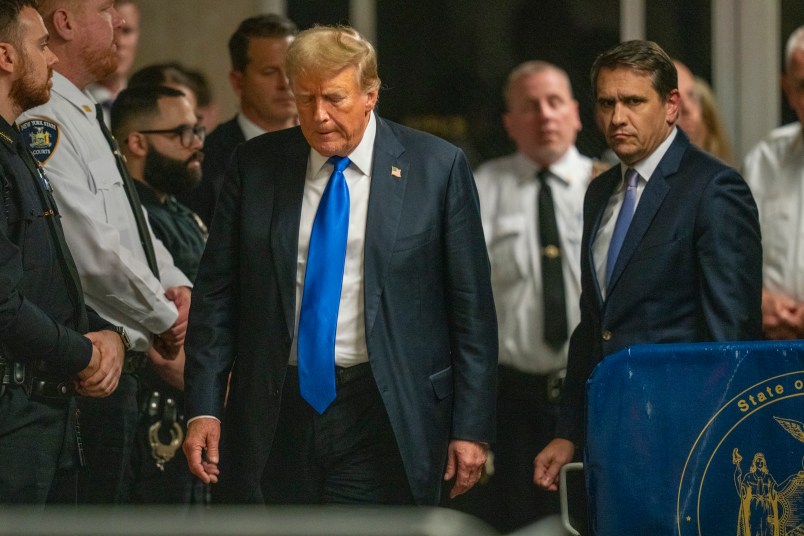NEW YORK — After years of scandal, allegations of criminal schemes, two impeachments, and four indictments, Donald Trump has been found guilty by a Manhattan jury.
It’s the first time in American history that a former President has been convicted of any crime. And on Thursday, a Manhattan jury gave Trump the distinction: in addition to being a former President and the assured GOP candidate for the November election, he is now a convicted felon.
The jury deliberated for around ten hours before convicting Trump on all 34 counts.
Even beyond a series of scandals that stretched from his time as a real estate developer, onwards through the Trump-Russia imbroglio, the first Ukraine impeachment, his attempt to stay in power after losing the 2020 election, the Mar-a-Lago records case, and more, Trump has waged a concerted attack on the concept that the law should apply to him as it does to everyone else.
The trial itself, in its processes, was a massive repudiation of that. It forced Trump to sit through one week of jury selection, more than five weeks of trial, and more than ten hours of deliberations, all under a gag order that he repeatedly sought to violate. For much of it, he complied as any other defendant in a municipal criminal case would have to, sitting silently at the defense table in a dusty old courthouse.
As the jury foreman read out the verdict, Trump sat stony-faced. As time went on, his facial expression grew into a deep grimace.
Attorneys for the former President had defended him in part by making a broad appeal for exhaustion and cynicism on the part of the jury, while downplaying the charges as overheated.
“Spoiler alert,” said defense attorney Todd Blanche during opening statements. “There’s nothing wrong with trying to influence an election.”
During his closing summation, prosecutor Joshua Steinglass outlined the case in terms of its impact on American democracy. Trump, he said, had conspired against the “fundamental premise that voters have access to information” in an election in order to determine who their leaders are.

“The entire purpose was to deny that access,” Steinglass told jurors of the Trump conspiracy, adding that its purpose was “to manipulate and defraud the voters.”
In convicting Trump, the jurors implicitly endorsed Steinglass’s argument. The conviction acknowledges that in spite of all the scandals and wrongdoing of the past eight years of American politics, and in spite of Trump’s constant arguments that he’s either above the law or that any attempt to hold him accountable is deficient or biased, there is still a basic line around criminal accountability.
The guilty verdict comes as the three other Trump prosecutions have stalled out. His other state-level case, the Fulton County, Georgia RICO prosecution, has not yet had a trial scheduled.
Of the two federal cases brought by Special Counsel Jack Smith, the Mar-a-Lago records prosecution has been indefinitely delayed by Judge Aileen Cannon for the Southern District of Florida. The Supreme Court looks poised to ensure that the D.C. January 6 federal case does not go to trial until after the November election, by which point it may be moot.
The facts of the Manhattan hush money prosecution drew critics for falling short of the scope and stakes of these other cases — the conduct took place years ago, none of it rises to the level of Trump’s efforts to stay in power after the 2020 election or theft and retention of top secret documents.
But the conviction is a bare reminder of a truth that the former President has long fought: that he’s not the arbiter of the world around him, and is equal before the law.
Source link




